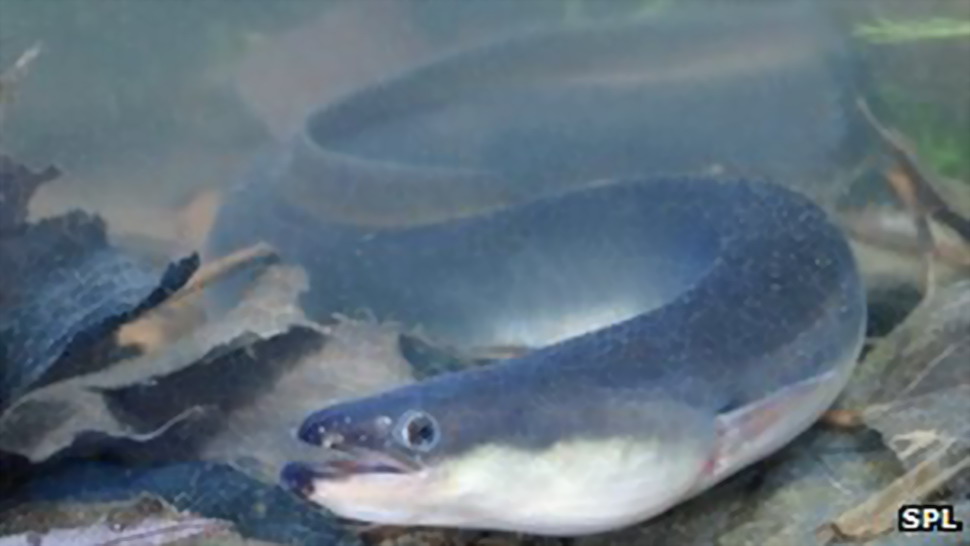

|

11th August 2013 - Eels to be helped back into Lake
There has been a 95% decrease in the number of European eels since the 1980s
Critically endangered eels are to be helped back into Lake Windermere, Cumbria, where they have not been seen in significant numbers for 30 years.
The European eel has seen a huge decline, partly because of barriers to migration including dams and weirs on rivers and flood defences.
Two chutes - or "eel passes" - are being put in the River Leven to enable access into England's largest lake.
Conservationists hope to get numbers back to 40% of those seen
in the 1980s.
Over the past three decades, there has been a 95% decrease in the number of European eels due to migration barriers as well as overfishing and loss of habitat.
The eels begin their lives in the Sargasso Sea, near Bermuda, before swimming thousands of miles across the Atlantic and heading up UK rivers to grow.
They later make the return journey to spawn.
While there were once thousands in Windermere, they are now rarely seen in the lake.
The new passes are being installed by the Co-operative Group and the South Cumbria Rivers Trust in an effort to persuade eels back into the waters of Windermere.
They are made of special bristly boards, which will allow the young fish to slither over obstacles on their way into the lake.
"The purpose of the bristle board is it gives the eels, who move in a sinewy fashion, the ability to purchase as they're coming through it," South Cumbria Rivers Trust manager Pete Evoy told BBC News.
"We'll feed some water down there - we'll have some pump water coming down these bristle boards.
"As they gain entrance from the river at the bottom, they can work their way up though here, through the entire pass when it's constructed, and over the top of the crest and into safe water at the top - and continue their
journey upstream."
Co-operative Group sustainable development manager Chris Shearlock told BBC News: "The population's probably only 5% of the size it was in the 1980s.
"But the idea is to get it back to something like 30-40% of where it was and that will take decades so that's the point about starting this process now."
The two groups plan to install eel passes in a number of rivers in north-west England, including several places in Lancashire's Lune Estuary and sites near Kendal, Cumbria.
©Norfolk Fishing Network 2004 - 2026®All Rights Reserved.